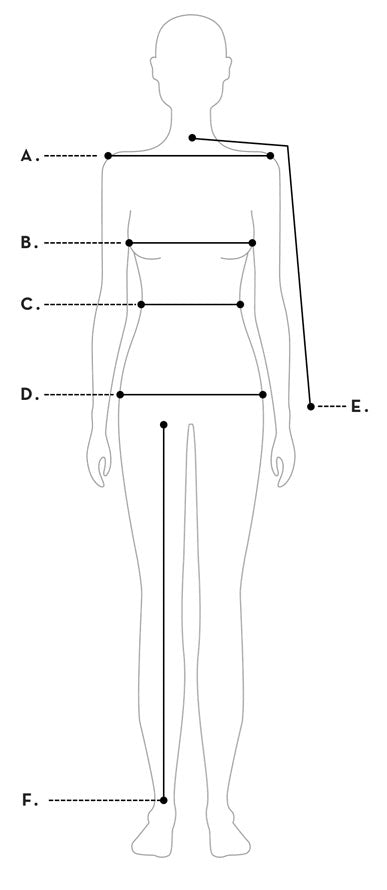
Actress Morena Baccarin visits Venezuelan refugees assisted by the IRC in Cúcuta, Colombia. Since April 2018, the IRC has been working in Cúcuta, supporting Venezuelans and vulnerable Colombians with specialized services. Photo by Andres Brenner/IRC.
International Rescue Committee
In Honor of World Refugee DayQ&A

Baccarin in Cúcuta, Colombia, with the IRC. Photo by Andres Brenner/IRC.
I went in 2019 with the International Rescue Committee. We wanted to shine a light on the Venezuelan crisis. The figures are staggering—as many as 40,000 Venezuelans cross the Simon Bolivar bridge to Colombia every day to buy basic goods, like toilet paper, eggs, diapers, medical supplies. These things are either in limited supply in their own country or they couldn't afford them there. Many cross back, but a good amount—some 5,000 of them—do not return. The border are open to them, but Colombia doesn't have the infrastructure to be able to deal with the influx of new immigrants coming in. So the IRC set up a center in Cúcuta, very close to the border, to provide assistance and medical attention. There is a maternity ward and a school, a place where children could go have a meal and sit in an air-conditioned place to read, write and draw. It was really touching, one of the most profound trips I've done.
I got to know the women at the clinic and listen to their stories. They told me about the trauma of moving, what the conditions were like in their home country and what their hopes were for the future. We did activities with them, like trust exercises, to help them emotionally. I remember a picture of a tree on the wall and they would fix their hopes and dreams on it—so they could look toward a goal that was tactile and concrete.
I interviewed mothers who were crossing the bridge, with their toddlers and babies in hand, to get medication for them. Sometimes, they would cross twice a day. And this is a very long journey. They're not crossing the bridge for a walk. You have to be pretty desperate to walk for miles with your children in the hot sun. Some hadn't had a meal in two or three days. It's crazy that human beings have to go through something like that when there is so much wealth and so many resources around the world.
I was really struck by how grateful they were and how much they wanted to work. In the U.S., people tend to have a preconceived notion that refugees want a free ride and this was the exact opposite. I remember the IRC was setting up one man with a little bit of cash so he could have an ice cream truck, so he could sell his ice cream in the town square. It was a very simple way to make ends meet, but it was very important to him because he wanted to send money home to his family.

Baccarin at the IRC clinic in Cúcuta, Colombia, listening to the women's stories. Photo by Andres Brenner/IRC.
It meant a lot to the people to have a place and point of contact where they could go if they needed help. Because once you cross over to the other side, it takes a while to get into the city and, even then, where do you begin? A lot of the women create friendships and a support system through the IRC. They are able to grow and move forward. The IRC provides a safety net, immense psychological support—which is really important at that stage—and a place where they feel heard. They have a kinship and common ground with other people because the experience, going through those hardships, can feel very isolating.
I visited a communal garden in the Bronx where many refugee residents grow produce from their home countries. It gives them a sense of community as well as a taste of home. It was wonderful to see.
My family immigrated from Brazil to New York when I was seven. I know how difficult it is to assimilate—my brother and I were very young and didn't speak any English. We actually moved back to Brazil for a couple years—my father stayed and did that whole thing where he would send money to us—before we came back. I still felt like a total foreigner, but remember feeling incredibly supported by my community. It was through small acts of kindness—simple things like helping you figure out what lunch is on the menu or where the bathroom is at school.
It's the same with refugees who come here. I was at the IRC office in Maryland and met a lot of the new immigrants who arrived, from war-torn countries, within days. A lot of the women who come from patriarchal societies are never allowed to have money or don't know how to spend their own money. The staff takes them to the grocery store, shows them how to buy clothes, how to use a credit card for the first time. Those small things—even showing them how different a carton of orange juice is from the one at home—can make a big difference.
My mom, an artist and actress, grew up in Brazil during a dictatorship and always felt it was important to speak out for women's rights and artist's rights. So I grew up with that credo. It's important to have a voice and to fight for something. When we moved to the U.S., she continued that. She saw The Vagina Monologues here in New York and that it was such a powerful play about women's issues, she bought the Brazilian rights and brought it there. It ran in Brazil for 10 years.
I don't frame it to them as activism. I don't want them to feel like they have to speak out for things, just for the sake of it. I foster them to be exposed to a lot of different things. For example, through the IRC's help, we connected with an Afghan family who recently moved to the U.S. and helped them with supplies. We bought groceries for them. My kids donated their toys and brought them candy (because that's their highest currency). It was important to open their eyes to experiences like these.

